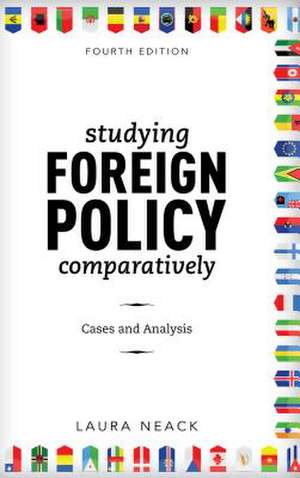STUDYING FOREIGN POLICY COMPARCB: New Millennium Books in International Studies
Autor Laura Neacken Limba Engleză Hardback – 16 iul 2018
Preț: 707.77 lei
Preț vechi: 969.56 lei
-27% Nou
Puncte Express: 1062
Preț estimativ în valută:
135.44€ • 144.82$ • 112.92£
135.44€ • 144.82$ • 112.92£
Carte tipărită la comandă
Livrare economică 18 aprilie-02 mai
Preluare comenzi: 021 569.72.76
Specificații
ISBN-13: 9781538109618
ISBN-10: 1538109611
Pagini: 224
Dimensiuni: 152 x 229 x 17 mm
Greutate: 0.47 kg
Editura: Rowman & Littlefield
Seria New Millennium Books in International Studies
ISBN-10: 1538109611
Pagini: 224
Dimensiuni: 152 x 229 x 17 mm
Greutate: 0.47 kg
Editura: Rowman & Littlefield
Seria New Millennium Books in International Studies
Notă biografică
Laura Neack is professor of political science at Miami University, Oxford, Ohio. She is the author of National, International, and Human Security: A Comparative Introduction, Second Edition (Rowman & Littlefield, 2017).
Descriere
Integrating theory and case studies, this cogent text explores the processes and factors that shape foreign policy. Following a levels-of-analysis organization, Neack considers all elements that influence foreign policy, including the role of leaders, bargaining, national image, political culture, public opinion, the media, and nonstate actors.















